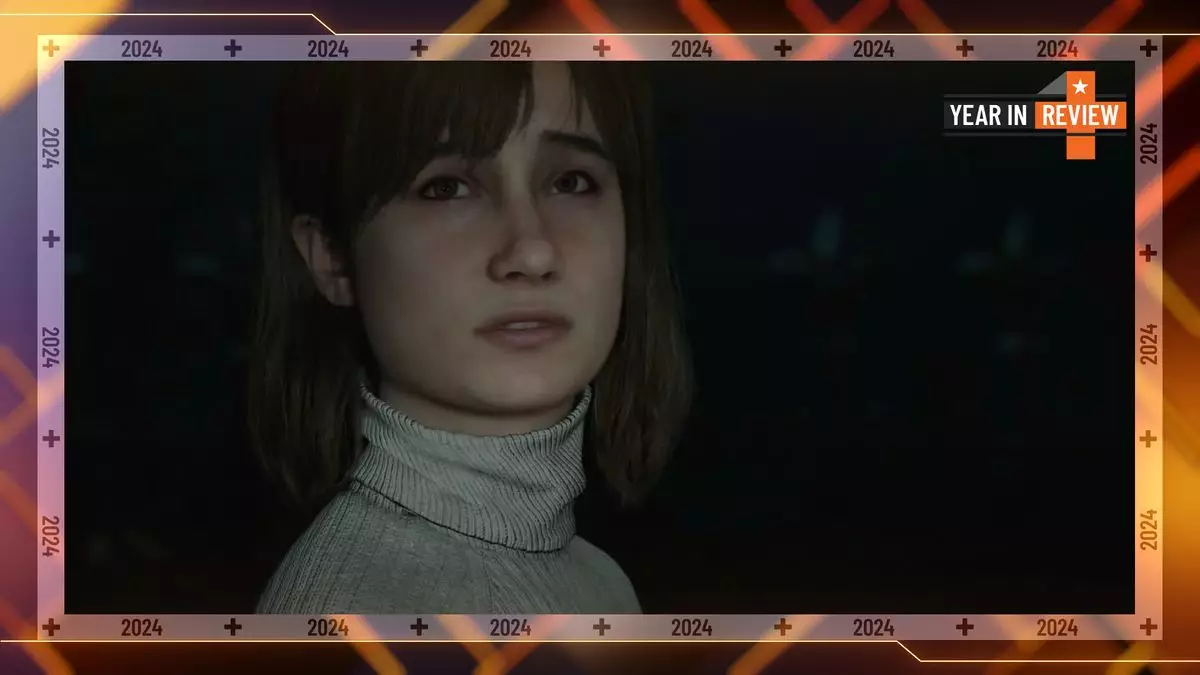Angela Orosco—once a haunting image of despair from Konami’s original release of Silent Hill 2 in 2001—has undergone a significant transformation in the Bloober Team’s 2024 remake. At just 19, Angela embodies the complexities of trauma and the anguishing struggle for self-identity amidst chaos. In Bloober’s rendition, Angela is not merely a caricature of victimhood; she is depicted with a solemn dignity that resonates deeply with audiences navigating their own harrowing experiences. This evolution is especially poignant in a year marked by intense discussions surrounding female representation in video games, where the portrayals of women often swing between stereotypes and form a battleground for cultural narratives.
For many, Angela’s initial presentation left much to be desired. Critics of Bloober’s approach argue her design appears too gentle and youthful, diverging from the harsh visual cues that characterized her original portrayal—elements that could be interpreted as allegories for the ravages of trauma. Angela’s earlier visage, stark and bloodless, seems to embody a life hardened by suffering. Yet, this critique overlooks the profound essence of her character’s journey; it is not solely the physical appearance that defines her but the assortment of emotions she navigates throughout her story.
The Complexity of Angela’s Struggles
Angela’s story arcs through a layered exploration of psychological distress and alienation, evident from her encounters with the protagonist, James Sunderland. One of the most chilling moments occurs when she stares at her reflection through a smudged knife, symbolizing her inner turmoil and contemplation of death. The dialogue—“It’s easier just to run. Besides, it’s what we deserve”—speaks volumes about a young girl burdened by overwhelming pain and the need for escape. In Konami’s original game, the delivery of these lines felt almost jarring, as the character’s surreal voice blended eerily with the atmosphere, serving to highlight the uncanny nature of trauma.
However, what Bloober successfully captures in their remake is not just Angela’s pain, but the which underpins it. The moving performance by voice actress Gianna Kiehl captures the tumult of anger and suffering that defines Angela. As players become acquainted with her struggles, the forthcoming confrontation with Abstract Daddy transforms from mere gameplay to a visceral encounter with the stark reality of abuse and the complex relationship dynamics intertwined with it. By recontextualizing this fight, Bloober transforms Angela into a symbol of resilience rather than a victim entangled in a grotesque narrative.
Finding Parallels in Angela’s Journey
Engaging with Angela’s portrayal sheds light not only on her character but also on the broader dynamics of victimhood and the reactions it garners from audiences. The vulnerable scenes bring forth an authentic recognition for those grappling with their own shadows, echoing personal experiences of shame and regret many individuals wish to bury deep. The narrative’s emotional weight speaks to my own journey—recalling a childhood fraught with turmoil and the cyclical nature of trauma that persisted into young adulthood.
As someone who has navigated through emotional labyrinths similar to Angela’s, connecting with her character provides a sense of community and compassion that resonates powerfully. The intensity of feeling seen and understood culminates in moments where Angela reflects upon her value, or lack thereof, through her mother’s words. “Don’t pity me. I’m not worth it,” exposes the delicate interplay between self-worth and external perceptions that many silently struggle against.
Bloober’s Angela emerges not just as a character but as a mirror reflecting the complexities of inner struggles faced by survivors of trauma. The act of creating a character that resonates genuinely instead of reducing them to tropes or visuals does more than cultivate empathy; it empowers those who have fought similar battles.
Hence, perhaps the most significant takeaway from Angela’s metamorphosis in Silent Hill 2’s remake is the reminder that effective representation does not necessitate sensationalism or adherence to historical interpretations. Angela Orosco stands resilient as a multi-dimensional character with whom many can identify. The penchant for authenticity over the pursuit of fitting within defined beauty standards underlines a movement toward recognizing women in gaming as complex individuals with their own narratives—not merely as echoes of past portrayals.
This year, amidst a climate rife with discussions of representation in gaming, Angela’s evolution serves as a reminder that characters must embody their complexities without dilution. Her voice echoes through the experiences of many, holding space for both pain and healing—proving that video games can be a profound medium for storytelling, inviting players to confront and process the intricacies of their lived experiences. As we see luminaries like Angela take the stage, we reaffirm that their stories are not merely fodder for gameplay but vital narratives that deserve to be heard and felt.


Leave a Reply